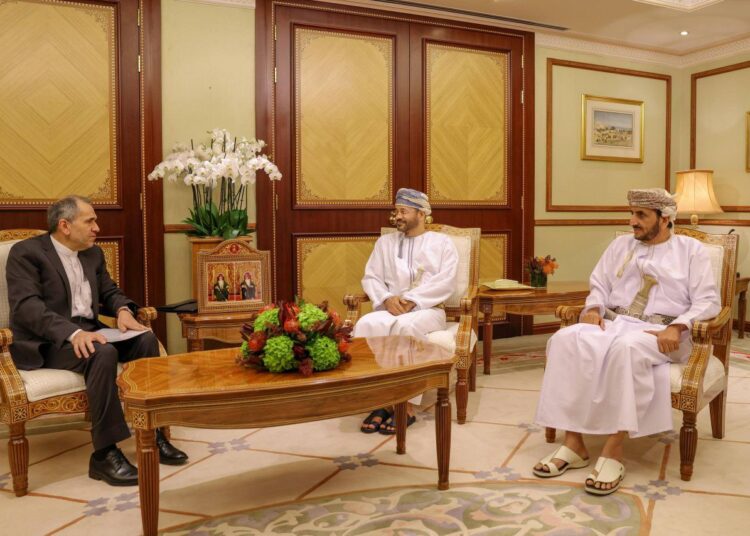Diplomatic shuttles have been busy on the Tehran-Muscat route lately, sparking the usual round of speculation: Are Iran and the United States about to start talking again? We saw Oman’s Interior Minister in Tehran meeting with top officials, followed quickly by Iran’s Deputy Foreign Minister heading to Muscat. It all looks like the prelude to something significant.
But is it?
Then you have the official statements. Iranian Government spokeswoman Fatemeh Mohajerani confirmed that Iranian Foreign Ministry has received “messages for the resumption of negotiations,” but coyly deferred any details to a more “appropriate time.” Frankly, this sort of indirect exchange of messages is always happening. It’s the diplomatic equivalent of keeping the phone line from going dead. On its own, it doesn’t signal a breakthrough, especially when the fundamental sticking points with the United States haven’t budged an inch.
When you look closer, the picture gets more complicated. The flurry of visits has naturally put Oman, the region’s traditional and trusted go-between, back in the spotlight. But let’s not forget the diplomatic merry-go-round of the past few months and weeks. Russia, Egypt, Qatar, even Japan – all have been floated as potential mediators at one point or another. This constant shuffle of potential hosts raises a key question: why can’t one channel stick? It feels less like a coordinated strategy and more like a symptom of a deeper problem.
The real answer may lie in a single, seemingly optimistic sentence from Oman’s Foreign Minister, Badr Al Busaidi, at the Manama Dialogue. He expressed hope that Iran and the US would return to negotiations. For anyone who’s followed Omani statecraft, this is a tell-tale sign. The unwritten rule of Omani diplomacy is that when real, secret talks are underway, Muscat goes completely silent. Publicly cheering for talks is what you do when they aren’t happening. It’s a statement of readiness, not a report of progress.
This reading of the tea leaves fits perfectly with what both sides are saying publicly. Iran’s Foreign Minister, Abbas Araghchi, insists a fair deal is possible but points out that “Washington has put forth unacceptable conditions.” In other words, the door to a deal might be unlocked, but Washington is still demanding Iran walk through a wall to get there. Tehran’s own resolve hasn’t softened, suggesting the core strategic calculations on both sides remain frozen. Meaningful dialogue seems unlikely under these conditions.
This is why we see the revolving door of would-be mediators. In the absence of a serious, agreed-upon process, a diplomatic vacuum forms, and various countries start jockeying for position, hoping to gain a bit of prestige by filling the void. This fragmentation is perhaps the best evidence that no centralized, substantive process is actually underway. It creates a confusing diplomatic space where rumors – like the one about the US wanting to sideline Oman – can thrive simply because there’s no solid reality to contradict them.
This brings us to the core logic articulated by Ali Larijani, the Secretary of Iran’s Supreme National Security Council. His argument, in essence, is that you don’t get an adversary to ‘see reason’ by offering up concessions from a position of weakness. True leverage, in this view, is built from the inside out. The “correct path,” as he puts it, is strengthening national unity, which itself depends on economic reforms that bring stability back to people’s lives. It’s a strategy based on building domestic resilience, not on tactical flexibility under fire.
Ultimately, who the mediator is matters far less than the political will of the principals. A ‘mediator,’ it seems, cannot play the role of a ‘savior.’ Any meaningful agreement depends not on the skill of the facilitator but on a fundamental shift in position, particularly in Washington. Until both sides can arrive at a shared understanding of what a realistic deal looks like, even the world’s best mediators will be left with nothing to work with.
Changing the facilitator is just shuffling deck chairs. The entire prospect for change hinges on untying the knot in Washington. As long as the United States maintains its posture of making unacceptable demands, there can be no real hope for progress. A breakthrough requires a fundamental shift in the American approach – from one of dictation to one of genuine negotiation.






